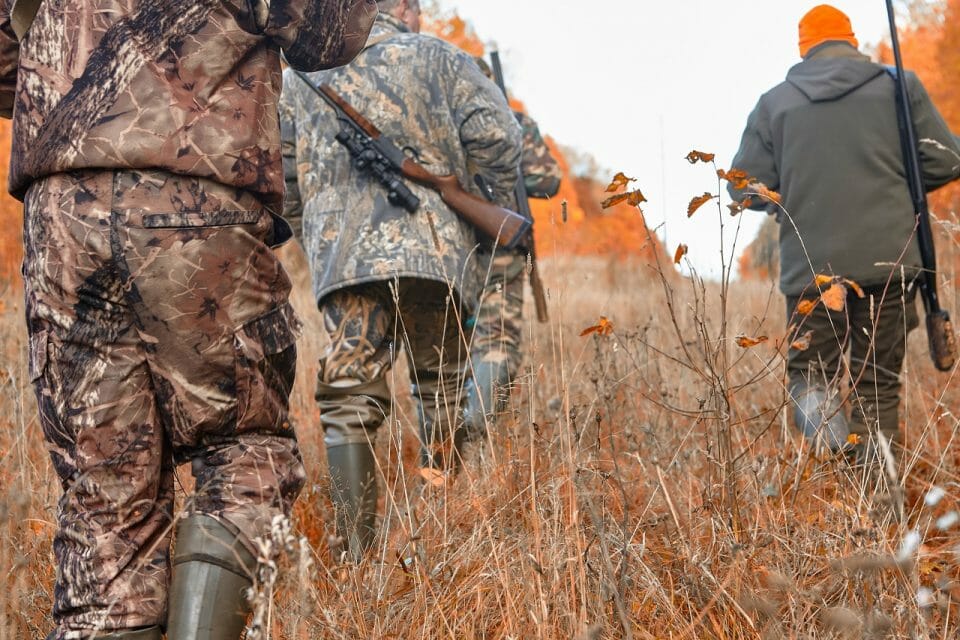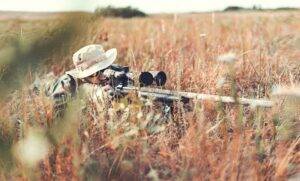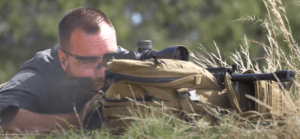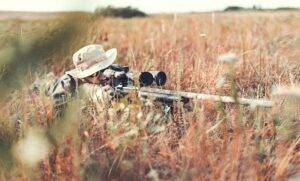
group of hunters during hunting in forest
Whether you’re a new hunter or one that’s been in the game for a while now, there are ways for you to take your game to greater heights. There’s always an opportunity to learn more, be it for the sake of further ensuring your safety or increasing the chances of a successful hunt.
The last thing you’ll want as a hunter is to regress, especially if, like many others, hunting is more than just a hobby for you. It may be a means of putting food on the table for your family or perhaps even a part of your profession. Try these tips so you can be as good at hunting as more seasoned hunters are:
1. Be Prepared
A soldier doesn’t go into battle unprepared. The same goes for hunters, too. To be more successful, you’ve got to go to the woods ready for anything. Being prepared means having the skills, moves, and physical stamina to withstand the entire duration of the hunt. It also involves figuring out what kind of pistol or hunting gun you should use, and you can do so by turning to online resources such as reviewster.com. If you’re looking for a mini reflex sight, you should check out https://gunlawsuits.org/top-picks/shield-rmsc-red-dot/.
When you listen to or read about the success stories of many hunters, you’ll find several things they all did in common. They went through a tremendous amount of research, planned their hunting trip well, frequently practiced shooting, had well-equipped Body Armor Packages, and scouted the area carefully.
Practice makes perfect, and indeed, the more you hunt, the more skillful you become with it. This also enables you to familiarize yourself with the hunting accessories and tools you’re using, which can ultimately affect the outcome of your hunt.
2. Go Extra Slow
In hunting, the pacing is of utmost importance. It’s not enough to walk at your normal pace or a little slower than normal. You’ve got to make small, calculated steps so you don’t scare off your target.
Apart from walking, you’ll also need to learn how long you should stay in the area. Typically, this depends on factors such as your location, the animals you’re hunting, and the likelihood of a particular creature actually show up.
3. Pay Attention To Details
A bad hunter is someone who doesn’t take the time to notice what’s going on around them. In hunting, you’ve got to pay attention to the smallest details. This means connecting one detail to another in order to better understand the habits and environment of the animals you’re hunting.
For example, if you’re hunting deer, study how they move. Take into account the possible conditions of your surroundings when you zero in on the creature and where and how you might be able to score that perfect shot.
4. Learn How To Beat The Wind
Beating the wind means learning how to follow the noise or the trail left behind by the animal you’re trying to score. Be sure not to ignore any sound carried by the wind while you’re making your way to the creature.
Along with learning how to beat the wind, you should do your best to minimize traces of your scent. This will buy you time, so you have several more seconds to make that shot if an animal is downwind from you.
5. Stop Whenever You Make Noise
When you’re hunting outdoors, you can’t completely avoid making a sudden noise no matter how careful and slow your pace is. This can happen, for instance, when you step on a bunch of crunchy leaves.
Since animals have heightened senses, it’s important to stop in your tracks as soon as you make any noise. Stand in your current position for as long as you think an animal suspects your presence. A creature might stare right in your direction. If it doesn’t see you, then it’ll go back to what it was previously doing, seemingly undisturbed. This will give you a better chance of getting a good shot.
6. Study Your Location Wisely
Before you arrive at your hunting location, it’s important to give yourself enough time to study it. This means plotting the points where you’re going to stay, stand, enter, and exit. Typically, these would also depend on the animals you’re hunting and the animals that are inherently present in the area, so you have to understand their natural movements.
Conclusion
Hunting is a unique skill. It’s not just something you can learn and master overnight. However, it’s definitely a skill you can learn with time. The tips above will allow you to improve your techniques so you can be more successful in your deer hunting pursuit and be on your way toward becoming a better hunter overall. More than anything, if you manage to enhance your skills, you’ll be able to get more games, which is a goal that many hunters strive for.








